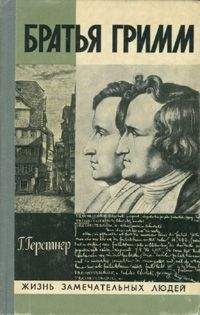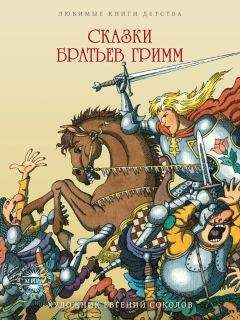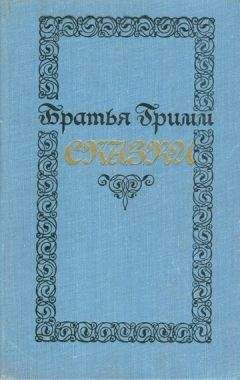Ed Lacy - Shoot It Again
“That's it! Sweet talk me to...!”
“Syd, I'm in a jam. Have you any money...?”
“Hear the man, and the way you were throwing francs around the other night like a rich brat! Didn't you pass your beloved American Express shrine on your way here, full of rich Yanks? Ditch me and then come begging for a handout like a bloke...”
Jumping to my feet, I picked up her beach bag. “Christ, have you any francs or not?”
“No! Ask your Noel, in that strip-tease joint where she labors!”
The Amazon finally had a name—Noel. I squatted beside Syd once more. “Honey, this isn't what you think,” I said, one of my hands exploring the towels and creams in her bag until I found the purse: she only had a few coins. “The... eh... jam I'm in—I either lost my travelers checks, or was robbed. That's why...”
“Then you did go to bed with Noel! She rolled you!”
“Oh for—I don't sleep with every babe I meet. The trite line sounded sillier than asking madame the blonde's name.
“You try your bloody best to!” She touched her hair again. “Come over to the pension. I've some money in my dresser.”
“Hon, I haven't time. Where does Noel work? Where did we first see her?”
“You dare ask me that? Leaving me alone in that filthy bar, in my cups, while you took off for Monte Carlo in her car. True, I only have a scooter but...” The tears came. She turned over and wept into the beach mat, small shoulders trembling.
I stroked the scrawny neck. “I only want to see if I dropped the checks... Where is this bar, honey?”
“Some place in... Villefranche,” she sobbed. “Syd, do you know an American named Robert Parks?”
She kept bawling into her beach mat. I patted the soft brown hair—unfortunately her best feature —which only seemed to increase the water works. Slapping her little behind, for no reason, I walked on down the beach, wondering how I could reach Villefranche.
I could walk, but that would take a few hours and an American walking the road might arouse some cop's curiosity. The train and bus stations would be watched... I glanced at the Mediterranee, my eyes attracted by the very blue and clean green patches of water. A young couple pedaled by, working their legs in lazy rhythm as they leaned back on the canvas seats and held hands, the pontooned little boat riding the gentle swell.
I could rent a pedalo—Villefranche was but around the next cape—perhaps two miles by sea. But I'd need at least five hundred francs for that—more to rent one of the clumsy double-ended boats in the harbor with their ancient engines.
The beach ends in the steep rocks beneath the Chateau—a tourist attraction park high above the breakwater and the harbor. Dressing, I hopped up on the Promenade, searching for police vans and motorcycle cops. A flashy new white Chevy—looking Cadillac—large among the compact European cars—whizzed by. Quickly walking down to the port and the first traffic light, I bought a French paper, sat on a bench. Holding the paper close to my face, as if terribly near-sighted, was a corny disguise. It took a long twenty minutes before what I wanted stopped for the red light, and my nerves were dancing by then.
A snappy, low-slung, black Mercedes-Benz roadster with U.S. ARMED FORCES IN GERMANY license plates—the horse-faced driver was young and slight—an officer type. Most important, he was alone. Stepping off the curb I asked, “Mac, any chance of a lift to Villefranche?”
“Why sure. On the way to Italy, ain't it?” he answered, with a twang only a couple months out of Kansas, or some other midwest state. “Hop in. Going to San Remo myself.”
As he gave the sleek car gas, the leather seat warm against my thin slacks, he told me, “You dress like a Frenchie. But soon as you spoke, knew you was from the States. Tourist?”
“Yeah. I was here during the war, always wanted to come back for another look-see. Are you a lieutenant?”
“Heck no, just a lousy sergeant, stationed in Berlin. Got me another year to go over here.” He laughed. “It ain't too hard to take.”
When he laughed I realized he was only a kid, nineteen or twenty. “You must be the world's champion crap shooter,” I told him, wondering if I could ask him to cash a check.
“Me? A...?” The puzzled look fled his long face as he laughed again. “You mean this sharp heap—nope, I'm paying it off out of my salary. Ain't nothing else to do with the dough. Got me a real good buy on this and before I return Stateside, I'll sell it. Like money in the bank, I say, but better— can't ride a bankbook. Said you were here during the war—heck, you don't look that old.”
“Old? I'm not talking about World War One, sonny.”
“Me neither. Probably no vets still alive from that shindig,” the dumb punk said. I'm kind of touchy about my age, so I kept my trap shut, didn't mention cashing the check—the fresh thing probably wouldn't have done it anyway. When he slowed up at Villefranche, I thanked him and leaped out. He called back, “Glad to oblige an old soldier, Pops.”
Being a regular port of call for the U.S. Navy, Villefranche is a mixture of a quaint old fishing village plus a number of flashy bars. Walking downhill toward the harbor, I passed several joints proudly advertising “strip tease.” In a country where stage nudity has long been a common sight, I could never understand the popularity of the strip, but every club had one or more peel artists.
Finding Noel was almost too simple. Outside a basement dive called Jazz-Shocker were the usual asinine photos of bare babes, all posing as if they had a stick up their rears. Seeing Noel's picture was reliving my dream. Her gross face and exaggerated curves served as comic relief for the standard slim figures of the other teasers. Walking down a few steps, I rattled a gate closing off the staircase. The gloomy inside of the club seemed small, upside-down chairs on the tables a forest of varnished wood. The walls were splashes of various colors, all of them positively gaudy. The bartender was busy-busy—doing something like watering the bottles.
Not a thing about the stupid place rang any memory bells. The barkeep called out in French that they didn't open until nine p.m. I said, in English, I wanted to find Noel. Coming over to his side of the gate, he handed me some shoe polish—in broken English—about the Jazz-Shocker having this strict policy of never giving the addresses of their entertainers.
I told him to pull it down over his head and call it curls.
The lids above his tired eyes seemed permanently puffed, and the big head was shaved. As he chattered on in poor English, the little eyes took stock of me like twin cash registers: weighing my sloppy clothes against the fact I was an American, speculating on how much I might pay for Noel's address. I'd gladly offered him every franc on me—which wouldn't have made him yawn.
I went into a song and dance about the blonde being my personal friend—the bartender couldn't have cared less. In fact, his eyes seemed to say he doubted I wanted a girlfriend. A little rattled, on the spur of a dumb moment, I tried a change-up pitch. “Look, Noel will want to see me. Just phone her that Robert Parks is here.”
He tied hard not to react but there was a new alertness in the beady eyes. With a hammy grin he said, “Monsieur, I about to go for lunch—as friend I take you to Mademoiselle Noel. I can no say she be home, or wish to see you. But I take you.”
In less than a minute we were walking down the narrow twisting stairs they insist are streets in Villefranche—toward the harbor: a dull-grey U.S. destroyer anchored out in the bay. I was aware my newly-found “friend” was careful to walk at my side, never in front of me... or was it my imagination? In the sunlight he seemed far more muscular than I'd thought. The slightly-flattened nose, puffed eyes, hinted he could have been a pug years ago.
Syd had mentioned Monte Carlo and somehow I thought we were heading for a garage and a car; but we turned into a dead-end street of ancient houses, then into the oldest of these. The street was strangely empty—at noon people are usually out buying their charcuterie for lunch. We marched up four flights of worn stone steps and his being behind me all the time didn't stop the uneasy feeling building inside my puffing guts. Still, he looked about forty-five—and I was not only a half-dozen years younger, but had seventy pounds and a foot in height on him... seventy slightly-flabby pounds, it was true.
Reaching the top floor, bullet-head knocked on the lone door, then turning abruptly—came at me, hands set for a Judo chop. I once had a wrong notion abstracts with a sporting event motif might sell, read Judo books as part of my research. My bartender-buddy had probably never read a single such book—he was a pro. Blocking his left, I threw a right... felt the back of my head leave the launching pad.
I came to in a room full of ridiculous, old-fashioned, plush furniture. Ridiculous because the clumsy junk looked new. My curly head was still soaring—this was the day to get my thick noggin whipped—when it finally settled back on my sore neck, I was able to get the two men into focus. One was my “friend,” the other looked so much like the B-movie conception of a gangster, I could have grinned—under other circumstances. He also was short, but with an attractive bull neck and barrel chest. The swarthy, over-handsome face held strong features, brittle eyes, and gold teeth in a wide mouth. The glistening black hair, with the right touch of silver-grey at the sides, was well acquainted with a brush and oil. The heavy neck was circled by a thin gold chain, a thicker one about his powerful wrist. He was a sun-hound, skin a deeper tan than mine. The creased dark-blue silk slacks, white, Italian-styled sport shirt, the high-heeled shoes—all casual and very expensive. A small automatic in a pigskin hip holster completed the picture—even if that wasn't casual.
They were going over my wallet, thin book of travelers checks, and Robert Parks' passport. Moving on the stone floor, I shook my dizzy head. “Get up, fat bastard!” the gangster said, in English, with the proper throaty growl in his husky voice. “Where you get this passport?”
“As you're obviously not Robert Parks, what business is it of...?” The gangster sent a vicious kick at my side. Rolling out of the way, I tried not to scream, “I found it in my bag!”
“Where?”
“In my room...!”
The two of them held a whispered French conference. I stood up, staggering a bit. I heard the name of the big blonde—Noel—several times, and the word police came through once.
Gangster-type stepped toward me. “Fat boy, I want some goddamn level talk from you! What's your name? Who are you? How come this passport was in your suitcase? Parks your friend?”
I rubbed the back of my neck to give me thinking time—a foolish gesture: I nearly passed out with pain. Perhaps it was the pain: I became brave, decided to stop being the frightened cluck, do a little shoulder-talking myself to these runts. “Suppose you tell me what this is all about?” I asked, loudly. “I don't stand for being pushed around by a couple of two-bits slobs who think...”
Swarthy started for me, so did the bartender—chopping hands spread like a crab's. I kept my back to the wall. The bit in Judo is the surprise element—I'd had my share of surprises for the day. Turning slightly to face the bartender, I feinted with my left hand as I kicked him on the knee. Yelling, he sat down, hard. I then crossed what I thought was a nifty right to the side of the gangster's face, expected him to drop. Merely grunting, he hit me with a left hook any number of heavyweights would have been damned proud of.
Floating down a well of whiteness, I thought: This is also my day to tangle with pros! For a long time I seemed to be swimming hard and painfully in soupy brightness, a vast, creamy-white ocean—then night came on fast.
When I opened my eyes I was on the floor of a cell-like room, the only light being the sun streaming through a small, square opening high on one rough wall. I closed my eyes again to stop the throbbing in my sore head and jaw. Opening them seconds later, I made out dirty clothes piled on a chair, worn copies of Life, the Paris edition of the N. Y. Herald-Tribune on the stone floor next to an army cot.
Mr. Robert Parks was sitting cross-legged on the cot, wearing only torn and badly-soiled shorts—pimples and sores all over his broom-handle arms. A wispy, reddish beard outlined this thin face—looking pale and sickly, the eyes watery blue blurs, sharp nose dripping. Parks looked worse than his passport photo. For a moment we stared at each other with mutual suspicion.
Digging under the lumpy cot mattress, he pulled out my passport. Opening it, he cackled in an utterly silly voice, “Why... of course! It's you! You're Clayton Biner...!” He waved the passport at me. “Old man, you didn't come alone?”
I tried to talk but my numb jaw refused to work. Gangster-type could wallop! I'd taken three head beatings in less than that many hours.
Rubbing the silky hair on his chin, Robert Parks went on in the same childishly shrill voice, “Oh man, I thought you'd dig... was positive you'd bring the police. Instead... now... here you are... like me. Man, you duded out... on me!”
His wash-eyes began to tear as he grinned, showing neat, dirty teeth. Then Parks rocked back and forth on the stinking cot, full of low, intimate laughter... absolutely insane giggles.
CHAPTER 3
After several false starts I managed to stand. Except for a distant ringing in my dome, I felt okay. Grabbing a chicken shoulder, I jerked Parks to his feet—he didn't weigh in at much over 115 pounds—although he seemed six feet tall—each bone, tiny muscle, vein of his pitiful chest and scrawny neck showing, as in a medical illustration. “What's the big laugh?” I asked, my mouth and lips finally coming alive. “What the hell are you doing with my passport?”



